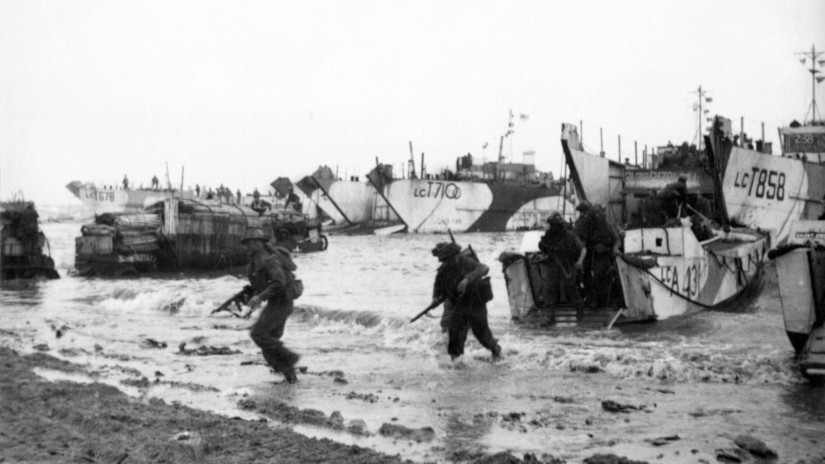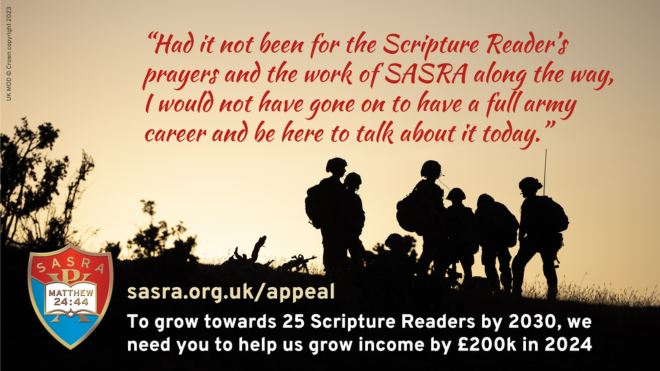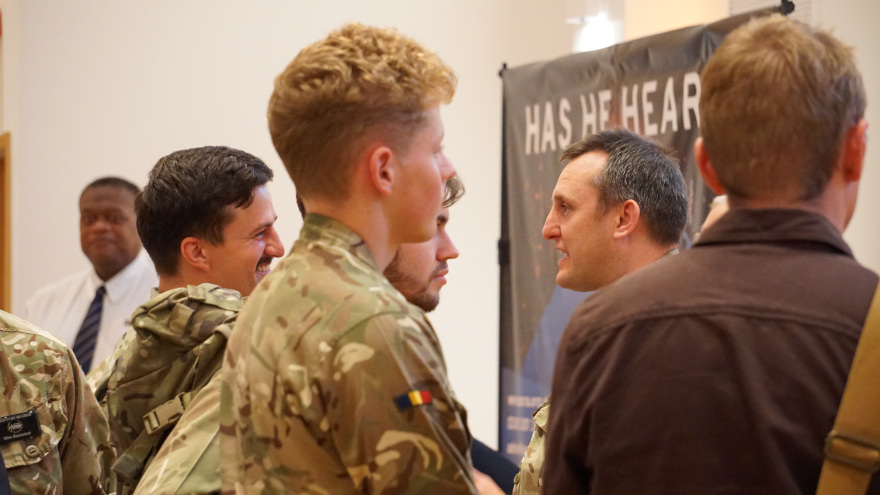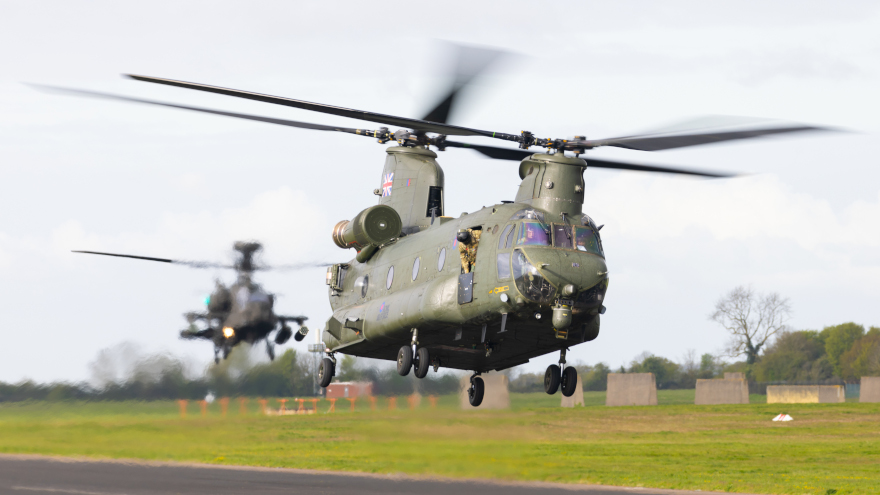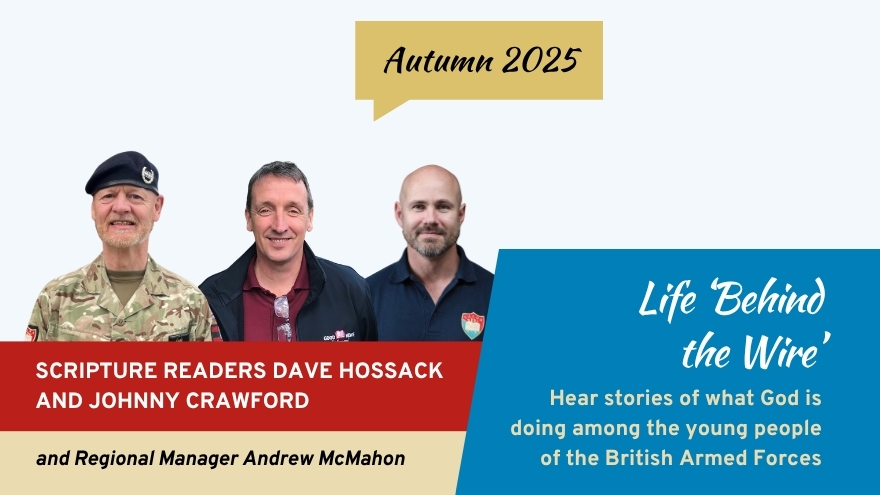Image: Commandos wading ashore from landing craft, onto the beaches of Normandy, June 1944. © Crown copyright
The need for Scripture Readers in June 2024 is the same as it was in June 1944 and we need more funding to meet the growing need. Can you help?
By Lt Col (Retd) Dr Martin Gliniecki QGM, Executive Director
The fundamental nature of war is immutable but its form or character changes, reflecting the time, culture and environment in which it occurs. Similar could be said of the gospel, immutable in nature definitely but responsive to changes in time, culture and environment. Clausewitz described the nature of war as danger, exertion, uncertainty and chance. The character of war is about how it is fought: the strategies planned, the policies derived, the tactics, techniques and procedures executed as well as the equipment, both hardware and software, and the way it is deployed and used. Moreover, some changes necessitate a moral review if war is not to degenerate into all-consuming hellishness. As the Allies began the Normandy invasion in 1944, they would discover the nature and character of contemporary war.
The psychological wounds of battle are as inevitable as their physical counterparts.
Despite Hollywood often romanticising war and battles, Normandy was anything but glorious—rather it was identified with pain and death, physical disfigurement and emotional turmoil, which was long-term for many and extending well beyond those directly involved to include family, friends, social groups and societies. From D-Day onwards fighting was brutal, with both sides committing atrocities. However, while Britain based its moral conduct on the Christian just-war tradition, albeit imperfectly at times, Germany’s ideology-based ethical behaviour was frequently reprehensible and barbaric. They killed indiscriminately, often with reprisals against prisoners of war and civilians.
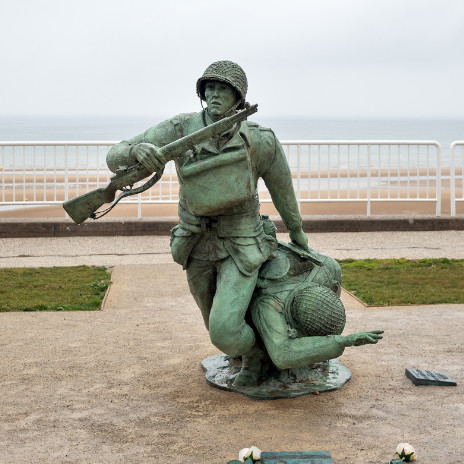
Soldier statue memorial on Omaha Beach.
In their lunacy they believed that they would win the war and that fighting was for national survival. It is little wonder, therefore, that with few British D-Day troops being battle hardened, combat stress and mental health would be serious issues—the psychological wounds of battle are as inevitable as their physical counterparts.
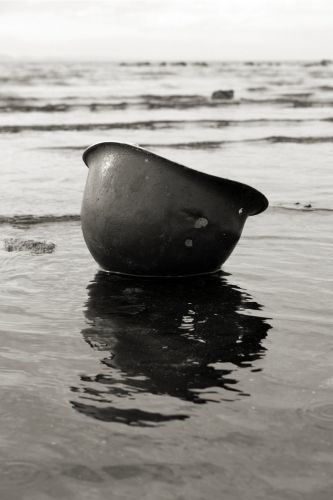
During World War II, controversy didn’t surround the inevitability of psychiatric casualties, mental illness and moral injury but the extent to which they could be minimised by selection, training, morale and leadership. Some, like Field Marshal Lord Gort, a Christian who had given evidence to the 1922 War Office inquiry into shell shock, argued that psychological disorders could almost be eliminated ‘in [the] face of strong morale and esprit de corps’. While commanders trusted traditional military virtues to address the problem of stress-related illnesses, in the early 1940s a new breed of psychiatrist believed that psychometric tests and a deeper understanding of human behaviour would enable them to identify those at risk of breakdown. By early 1944, when planning for the D-Day landings was well advanced, the problem of the psychiatric battle casualty was considered manageable by a combination of careful preparation and clinical understanding.
The provision of mental health or psychiatric services for Normandy would be based on a pre-invasion screening programme.
The Directorate of Army Psychiatry believed that psychological casualties would initially be light, increasing only when casualty rates rose and fatigue overwhelmed frontline troops. Within a month of the landings, however, senior military officers became concerned by the number of psychiatric and combat stress casualties and more particularly by failures of the system designed to manage them. In retrospect, the Directorate of Army Psychiatry argued that the shortcomings of the Normandy planning arose because it had based its estimates on data from the Western Desert.
Within a month of the landings, however, senior military officers became concerned by the number of psychiatric and combat stress casualties.
Yet, despite the huge military and logistic challenges, casualties and high incidence of combat stress, mental illness and moral injury, the D-Day operation was an extraordinary success. British troops in Normandy remained an effective fighting force with high morale. By the end of D-Day, 156,000 men had landed in German-occupied France, securing five beachheads. Deception plans had worked and within a week around 430,000 Allied men, 62,000 vehicles and 105,000 tonnes of stores had been landed. By July it would be a million men, 200,000 vehicles and 700,000 tonnes of stores.
According to Edgar Jones and Stephen Ironside:
‘The trend of psychiatric casualties was determined by the killed and wounded rate, though the actual level was mediated by other factors such as preparedness, morale, confidence in leaders and weapons and success on the battlefield.’
Unfortunately, Jones and Ironside exclude the profound spiritual dimension as part of mediation—a failing of academic rigour.
There is abundant evidence and examples of troops being saved through the complementary activities of Scripture Readers, Chaplaincy, HM Forces homes’ staff etc., all preaching the gospel.
Their efforts also had a profound effect on our troops fighting morally and successfully, with casualties being a quarter of those predicted.
Before D-Day, Army Chaplains prayed with troops, with this being reported by the press and over radio later. Reverend Canon Llewellyn Hughes, who would become Chaplain General to the Forces in November 1944, recorded:
‘[Before D-Day] there were crowded pre-battle services everywhere… aimed at a permanent attitude of mind giving the soldiers such a vision of God's will as would make the doing of it their main purpose.’
On Sunday 4 June 1944, a one-hour prayer vigil was held at the Headquarters 2nd Army (the UK invasion force HQ) with around 400 officers and other ranks in attendance.
Prior to the invasion our Scripture Readers were busily witnessing the gospel in barracks, military homes and camps. Mr Robert Laidlaw (pictured), a New Zealander on UK holiday at the start of the war decided, having prayed on his knees for God’s will, to remain in Britain rather than return to New Zealand with his wife and family. He joined ASR & SACA, SASRA’s predecessor, and as a superintendent volunteered to lead the first ten Scripture Readers into Normandy following D-Day. As the forces moved through France and Belgium and towards Germany, Scripture Readers were evangelising and discipling. Peter Chevill was called up into the Army in 1943, and served as a Technical Clerk/Driver in the RAOC. Landing on the Normandy beach in late June 1944, Peter moved to a camp near Bayeux and later to Brussels; here he attended the Belgian Gospel Mission where Robert Laidlaw and ASR Jim Watson were based. Peter enjoyed fellowship with both military personnel and Belgian families. On demobilisation Peter returned to the family business before moving to fulltime ministry.
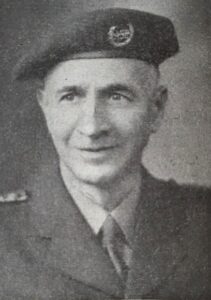
As the forces moved through France and Belgium and towards Germany, Scripture Readers led by Robert Laidlaw were evangelising and discipling.
Another of the ten Scripture Readers first deployed was ASR ‘Jock’ Main who ran blackboard meetings in the evenings with over forty soldiers attending; those same soldiers considered these a real blessing. ASR Farwell in another location, similarly, wrote:
‘[The] transit camp visits continue to give great opportunities for sowing the good seed and I do thank God for those who have been born again through hearing the gospel and the working of the Holy Spirit.’
In France, Private (Pte) Westland wrote of how ASR Farwell had, in the UK, shown him ‘a systematic way of reading my Bible i.e., the scheme laid down in Ready.’
Pte Wisewell, another SACA member, wrote:
‘We were almost the first in on D-Day when we experienced many incidents of the Lord’s protecting care over our unit after we landed...’
In summary, there are many lessons from D-Day and the Normandy campaign, its horrors and successes, worthy of learning and retaining for our betterment. Just as the nature of war is unchanging, so is the nature of the gospel, yet it is adaptable to the changing character of living and, when necessary, warfighting in the present age. It has the power, shared through faithful Scripture Readers, prayer and application, to deliver godly outcomes.
Before the Normandy campaign, our Scripture Readers were bringing the gospel to British troops that were very much in need, and which had a positive impact on our war fighters’ mental resilience, morality and ethical conduct, in sharp contrast to how they would find their opponents on D-Day. Christ is able to overcome the nature and character of evil and disorder of mind, soul and spirit, before and during conflict, whatever the causes and whatever the year, 1944 or 2024. In the last year alone, two service personnel have contacted Scripture Readers in a suicidal state—the gospel was used to show them both the road to recovery, with one recently confessing his faith in Jesus. That is the saving power of the gospel in our Scripture Readers’ hands.
Today we need more Scripture Readers to share the unchanging gospel of salvation to the 21st Century soldier and aviator. Our efforts prior to and during the Allied invasion cannot be dismissed as having nothing to do with its final outcome and similar gospel influence is what we seek today. Our Scripture Readers can also re-emphasise the need for a moral component of fighting power: that ability to do the right thing, be discriminate so as to reduce casualties, particularly civilians, and be proportionate, thereby preventing the worst and inhumane horrors of war.
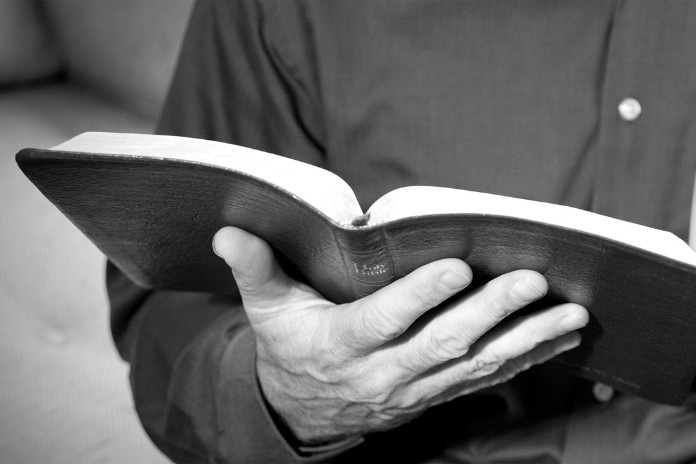
Will you pray and give to the work, and encourage others to do likewise? Our desire is to share the gospel with more soldiers and aviators, and at this time of mental health crisis help overcome some of its scourge, by breeding a Christ-like mental resilience in them.
PRAY WITH US

- Give thanks to God for protecting the United Kingdom and members of our Armed Forces during the D-Day Landings and that we can reflect on that time nearly eighty years on while still enjoying the freedoms that so many paid the ultimate sacrifice for.
- As the UK and her Armed Forces face the current global situation, pray for the provision of more Christians ‘behind the wire’, including Scripture Readers, and funds and resources to post them.
Pray for today’s Armed Forces on the 80th Anniversary of D-Day
- Thursday 6 June, 14:00 & 19:30 on Zoom
- For joining details, please email zoom@sasra.org.uk or call HQ on 03000 301 302





